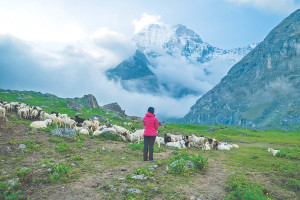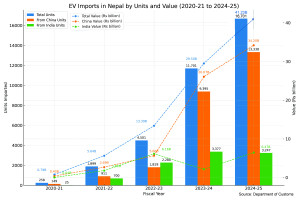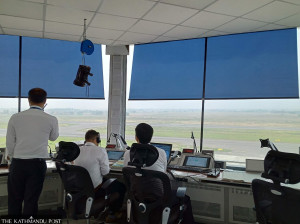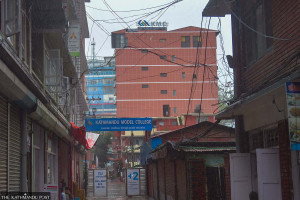Money
Consumers face pain as prices of household essentials soar
Experts blame lack of government inspection for the steep rise in market prices despite sufficient inventories.
Krishana Prasain
Consumers face pain as grocery prices soared after the government announced a two-week lockdown starting April 29. According to the Nepal Retailers Association, the cost of sunflower oil rose to Rs260 per litre from Rs240, and soybean oil reached Rs260 per litre from Rs245.
Other grocery items followed close behind. Sugar became dearer by Rs10 per kg, reaching Rs90 per kg. The price of chickpeas reached Rs110 per kg from Rs100 previously.
The price of rice increased by Rs100 to Rs150 per 20-kg bag while lentils became costlier by Rs15 per kg in the past few days.
Consumers say their food bills have risen sharply while they are saving on transportation expenses because there is nowhere to go.
Experts blame lack of government inspection for the steep rise in market prices despite sufficient inventories of daily essential commodities.
“It does not look like the government has been interfering with business offences at a time of crisis and managing the supply chain,” said economist Jagdish Chandra Pokharel.
“The government needs to be more alert. They should raid or inspect warehouses regularly as traders have a tendency to hoard goods and increase the price,” he said.
“The government is saying that there is no problem in supply, and that there are sufficient stocks for at least three months. But traders can create artificial shortages,” Pokharel said.
Prices of essential items have swelled since the prohibitory order was issued, and they have not come down even though the Department of Commerce, Supplies and Consumer Protection claims that it has been monitoring the prices regularly, say consumer rights activists.
Prakash Poudel, director general at the department, said that three inspection teams, each consisting of around five officials, have been checking the markets in the valley and handling complaints from consumers.
But prices are still following an upward trend, and consumers have not been able to see the effects of the market inspection.
"Government food stocks would have helped to control prices during situations like this," Poudel said
The wholesale price of edible oil, beans, legumes and sugar has increased while the rectal price of vegetables has increased. Eggs too have become costlier.
The country’s essential products supply system is in the hands of the private sector, and the government does not even have the data of goods delivered and in stock, due to which traders hike prices arbitrarily, said consumer rights activists.
The department has slapped large fines on firms involved in business offences, but consumers have not been able to feel the result of this action in the market.
Following the recent rise in prices, the department has been asking manufacturers and traders for the reason. Traders say that food items have become costlier because of increased prices at the source and higher freight charges.
Sanjay Kumar Phuyal, a Kathmandu-based wholesaler of food items, said that 75 percent of the food manufacturing factories have been closed due to the second wave of the coronavirus and transportation costs have also increased.
The price of rice has increased in India as demand surpasses supply, and this has caused prices to rise in Nepal too. Truckers have been charging Rs10,000-20,000 more per trip than the normal rate, he added. “The final retail price has been impacted by the increase at each link in the supply chain,” he said.
"If the government stops domestic manufacturers from exporting edible oil to India, the price will drop by Rs25-30 per litre immediately," Phuyal said.
It is not certain when prices will start to fall as the coronavirus pandemic is worsening, traders said
There are chances that unscrupulous traders will sell expired food products because people are stocking up on essential items.
The Department of Food Technology and Quality Control has deployed two people for regular market inspection under the leadership of a joint secretary for the Kathmandu Valley. They also respond to complaints received from consumers.
Upendra Ray, director general at the department, said that rather than sending out many officers on inspection tours, the department is doing market inspection on the basis of complaints sent in by the public.




 22.46°C Kathmandu
22.46°C Kathmandu

















